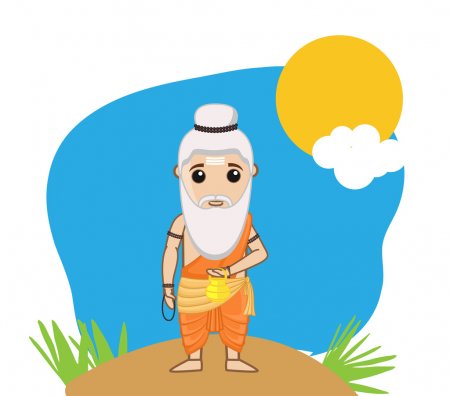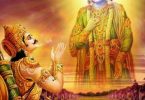Question: In the Ekalavya pastime, it is mentioned that one should perform duties according to one’s propensity and capability. However, Lord Krishna declares that it is not the prerogative of only the Brahmanas to indulge in sacred activities such as reading scriptures etc.; rather any one who can raise himself to the platform of bhakti is eligible for this. Are these not contradictory?
Answer by Romapada Swami: There are different ways to approach this question. First, I will briefly explain an important distinction between the the bhagavata-marg approach to qualifying oneself to perform brahminical activities, vs. the vaidic viddhis. Krishna’s statements in BG, much like the Srimad Bhagavatam’s essence, are connected to the path of bhagavata-marg. According to this method, one becomes purified of *ALL* material contaminations by the process of bhakti primarily focused on hari-katha; then, sequentially, one becomes eligible to perform brahminical activities, following proper initiation.
In contrast, the Ekalavya story is connected to the vaidic viddhis, wherein gradually evolving in one’s qualities and birth by following Vedic viddhis and prescribed duties is the focus. Ekalavya was disqualified on both accounts; Srila Bhaktisiddhanta Saraswati Thakur comments that Dronacarya assessed the character disqualification of Ekalavya, and thus was not inclined to become his teacher.
Note that these are two distinct yet equally valid approaches to becoming purified sufficiently to perform brahminical activities. Please also note that the Vedas consistently instruct us that only the bhagavata- marg is effective in Kali-yuga.
Here is another way to view this whole subject. Krishna says in Bhagavad- gita that everyone is eligible for attaining the highest perfection through devotional service. (Bg. 9.32). This is not contradictory to the statement regarding Ekalavya, as you have made reference to in your question. Rather, each of us can perform our own prescribed duties; but by doing so in focused devotion upon Krishna, one can attain liberation. Krishna Himself outlines different kinds of duties for the different social orders based on their nature. (Cf. Bg. 18.42-46) Thus, those who have braminical propensities such as austerity, cleanliness, sense control etc., can perform devotional service through activities such as sacrificial performance, reciting and teaching Vedas etc., similarly, one who has propensity for administration, business or labor can still worship Krishna through his own occupation. As far as devotional activities such as chanting, hearing Srimad Bhagavatam etc., there is no bar for anyone.
By following this bonafide process, one eventually attains the perfected stage of pure devotee, in which one becomes situated above the modes of material nature. Consequently he can perform any activity; but until one attains that stage everyone should abide by their own prescribed duties in Krishna consciousness.
As far as the pastime of Ekalavya is concerned, Dronacarya studied him and deemed him unfit to learn the ksatriya’s skills. Ekalavya then disobeyed the order of his spiritual master and proceeded to learn the martial arts by himself, and exhibited apparent pride in his accomplishment. By this prideful and independent-minded spirit, he actually proved that Drona’s assessment was correct: Ekalavya was unfit to receive ksatriya training and therefore restricted Eklavya’s opportunity to exploit his acquired skills.







